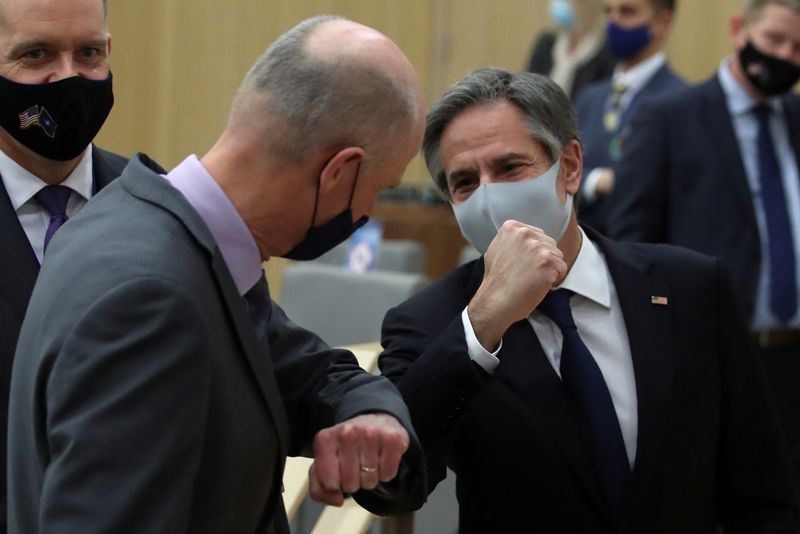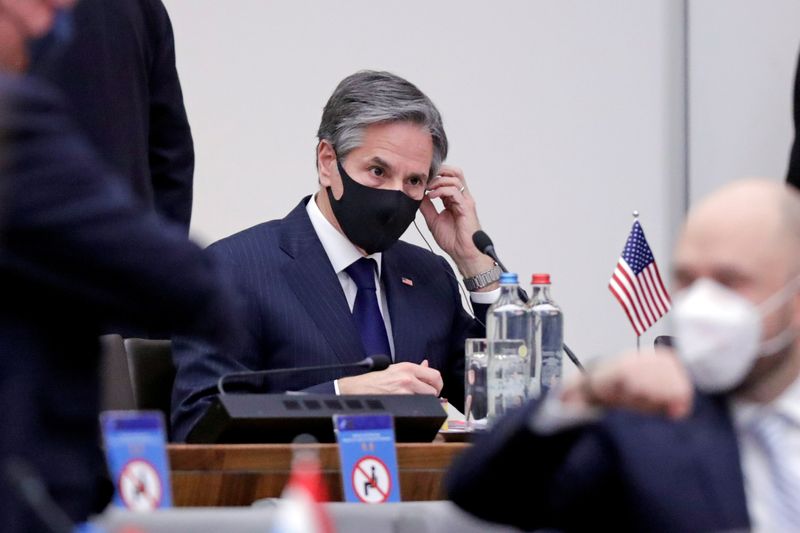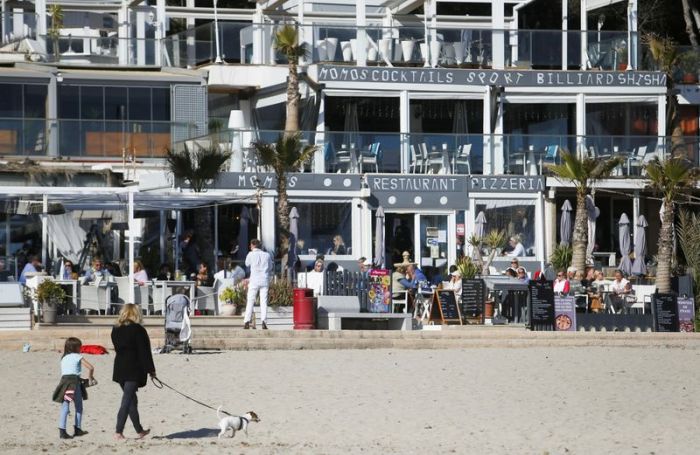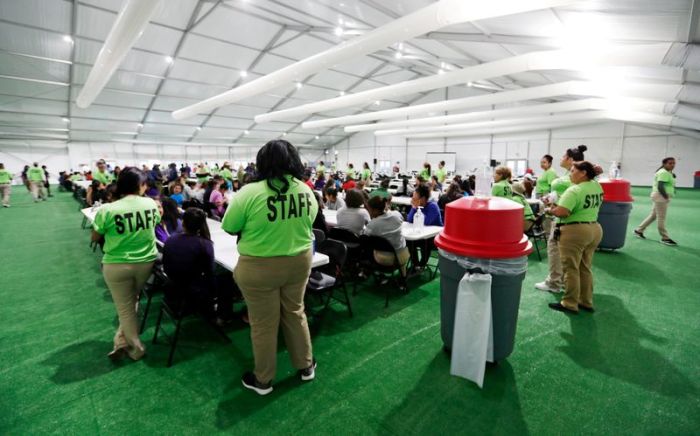BRUSSELS (Reuters) – The United States will not force any NATO ally to choose sides between Washington and Beijing, U.S. Secretary of State Antony Blinken said on Wednesday, although he warned that the West needed to show authoritarian states that democracy was superior.
European allies France and Germany are looking for a strategic balance in relations with Beijing and Washington that ensures the European Union is not so closely allied with one of the world’s two big powers that it alienates the other.
“The United States won’t force allies into an ‘us-or-them’ choice with China,” Blinken, on his maiden voyage to Europe as Washington’s top diplomat, said at the NATO headquarters in Brussels.
The European Union, led by France, wants independence from the United States, its ally and protector for over seven decades. Spain and the Netherlands urged the bloc to keep its economy open while seeking “strategic autonomy”.
“Countries can work with China where possible,” Blinken said. He noted that climate change was an area where cooperation was necessary with a country of 1.34 billion people that already emits a quarter of the world’s carbon dioxide, more than the United States, but is also an investor in renewable energy.
In his first trip to the EU headquarters, Blinken also urged the bloc to help stand up for liberal values and human rights, in a stark shift from four years under former U.S. President Donald Trump, who shunned the EU and promoted Britain’s departure from the club of 27 states.
“There is a fundamental debate under way about … whether democracy or autocracy offers the best path forward. I think it is up to us to come together and show the world that democracy can deliver for our people,” Blinken said.
As the United States and China vie for supremacy in areas from electric cars to biomedicine, Blinken also accused Beijing of undermining the international trading order that the United States and its allies built after World War Two.
“They are actively working to undercut the rules of the international system and the values we and our allies share,” Blinken said of China, standing by the 30 flags of the NATO alliance. “If we work together to make real our positive vision for the international order … we’re confident that we can outcompete China on any playing field,” he said.
China’s military ambitions were also growing, he said.
SANCTIONS
China denies any wrongdoing and says it respects global rules upheld by international institutions such as the World Trade Organisation and the International Monetary Fund.
Prior to the speech, the Chinese Foreign Ministry said on Twitter: “The US, UK and Canada together account for only 5.7% of the world’s population. Even if EU is added, that will be about 11%. They cannot represent the international community.”
Blinken, speaking to reporters, said in reference to gross domestic product: “When we are actually working with our European partners, Asian partners and others, we might be 40, 50 or 60% of world GDP. That’s a lot harder for Beijing to ignore.”
The United States, the EU, Britain and Canada imposed sanctions on Chinese officials on Monday accusing them of rights abuses in Xinjiang, in the first such coordinated Western action against Beijing under new President Joe Biden. Beijing hit back with broader punitive measures against the EU.
China’s decision to sanction European lawmakers, diplomats and institutes on Monday in response to Western sanctions appeared to galvanise opposition to Beijing at NATO and the EU, with several EU governments summoning Chinese envoys this week.
Italy said in a statement after meeting with the Chinese ambassador to Rome that the sanctions were “unacceptable”.
(Additional reporting by Sabine Siebold in Berlin and Crispian Balmer in Rome; Editing by Bernadette Baum and Nick Macfie)






















